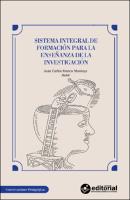Please use this identifier to cite or link to this item:
https://repositorio.uco.edu.co/jspui/handle/20.500.13064/995Full metadata record
| DC Field | Value | Language |
|---|---|---|
| dc.rights.license | http://creativecommons.org/licenses/by/3.0/ | |
| dc.contributor.author | Franco Montoya, Juan Carlos | spa |
| dc.coverage.spatial | Sudamérica, Colombia, Rionegro, Antioquia | es_ES |
| dc.date | 2020-12-31 | |
| dc.date.accessioned | 2021-10-13T15:43:08Z | |
| dc.date.available | 2021-10-13 | |
| dc.date.available | 2021-10-13T15:43:08Z | |
| dc.date.issued | 2020-12-31 | |
| dc.identifier | https://doi.org/10.47286/9789585518636 | |
| dc.identifier.isbn | 978-958-5518-63-6 | es_ES |
| dc.identifier.uri | https://repositorio.uco.edu.co/handle20.500.13064/995 | - |
| dc.description.abstract | La pregunta por la universidad ha venido cobrando relevancia y se podría afirmar que en la actualidad ha tomado diferentes matices, ya que campos disímiles han asumido dicha interrogante para su reflexión y crítica. Ahora bien, en la perspectiva de las ciencias sociales y humanas se ha venido reflexionado con relación a los llamados «problemas de primer orden en la universidad», dentro de los cuales se pueden categorizar todos aquellos que tienen que ver con los procesos configurados al interior de la institución en cuanto a sus funciones sustantivas basales: docencia, investigación, extensión y sus interacciones con sus emergentes y, por otro lado, las funciones de gestión, que tienen un carácter más administrativo y directivo pero permean directa o indirectamente las anteriores. Otros tipos de problema, denominados «de segundo orden», se relacionan con aquellas afectaciones que recibe la universidad desde otros sistemas (político, económico, cultural, religioso, científico, de salud) y hacen que ella sufra alguna especie de transformación o, en términos de Luhmann (1996a; 1998b), algún tipo de «irritación» que la perturba de forma directa o indirecta y genera en su interior una especie de cambios o mutaciones que la obligan a adaptarse a las nuevas condiciones. | es_ES |
| dc.format.extent | 264 | es_ES |
| dc.format.mimetype | application/pdf | es_ES |
| dc.language.iso | spa | es_ES |
| dc.publisher | Fondo Editorial Universidad Católica de Oriente | es_ES |
| dc.rights | info:eu-repo/semantics/openAccess | spa |
| dc.rights.uri | http://creativecommons.org/licenses/by-nc-sa/2.5/co/ | * |
| dc.subject | Investigación científica | es_ES |
| dc.subject | Educación - investigación | es_ES |
| dc.subject | Educación superior - investigaciones | es_ES |
| dc.subject | Investigación institucional – Universidad Católica de Oriente (Rionegro, Antioquia, Colombia) | es_ES |
| dc.title | Sistema integral de formación para la enseñanza de la investigación | spa |
| dc.type | Book | spa |
| dc.description.abstractenglish | The question about the university has been gaining relevance and it could be said that today it has taken on different nuances, since dissimilar fields have taken up this question for reflection and critique. and critical reflection on this question. Now, from the perspective of the social and human sciences, there have been reflections on the so-called "first order problems in the university", within which we can categorize all those that have to do with the processes configured within the institution in terms of its basic substantive functions: teaching, research, extension and its interactions with its emerging and, on the other hand, the management functions, which have a more administrative and managerial character but directly or indirectly permeate the previous ones. Other types of problems, called "second order", are related to the effects that the university receives from other systems (political, economic, cultural, religious, scientific, health) and cause it to undergo some kind of transformation or, in Luhmann's terms (1996a; 1998b), some kind of "irritation" that disturbs it directly or indirectly and generates within it some kind of changes or mutations that force it to adapt to the new conditions. | es_ES |
| dc.subject.subjectenglish | Scientific research | es_ES |
| dc.subject.subjectenglish | Education - research | es_ES |
| dc.subject.subjectenglish | Higher education - research | es_ES |
| dc.subject.subjectenglish | Institutional Research - Universidad Católica de Oriente (Rionegro, Antioquia, Colombia) | es_ES |
| dc.subject.lemb | Investigación científica | es_ES |
| dc.subject.lemb | Educación - Investigación | es_ES |
| dc.subject.lemb | Enseñanza - Investigación | es_ES |
| dc.subject.lemb | Ciencia - Investigación | es_ES |
| dc.subject.lemb | Ciencia - Difusión | es_ES |
| dc.subject.lemb | Ciencia - Divulgación | es_ES |
| dc.subject.lemb | Centros de investigación | es_ES |
| dc.type.spa | Libro | es_ES |
| dc.type.hasversion | info:eurepo/semantics/publishedVersion | es_ES |
| dc.audience | Interés General | es_ES |
| dc.rights.accessrights | Open Access | spa |
| dc.rights.spa | Acceso abierto | spa |
| dc.rights.cc | Atribución-NoComercial-SinDerivadas 2.5 Colombia | * |
| dc.publisher.department | Ciencias de la educación | es_ES |
| dc.publisher.program | Maestría en educación | es_ES |
| dc.description.city | Rionegro | es_ES |
| dc.contributor.corpauthor | Universidad Católica de Oriente. Facultad de ciencias de la educación | es_ES |
| dc.identifier.bibliographicCitation | Sistema integral de formación para la enseñanza de la investigación/ Juan Carlos Franco Montoya --- Rionegro: Fondo Editorial Universidad Católica de Oriente, 2021. 264p. | es_ES |
| dc.type.redcol | http://purl.org/redcol/resource_type/LIB | spa |
| Appears in Collections: | Libros | |
Files in This Item:
| File | Description | Size | Format | |
|---|---|---|---|---|
| Sistema integral de formacion para la enseñanza de la investigación.pdf | 2.1 MB | Adobe PDF |  View/Open |
This item is licensed under a Creative Commons License

